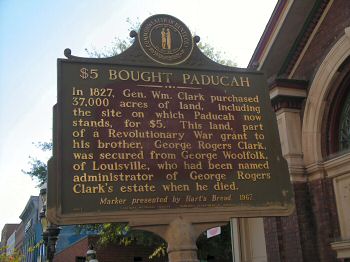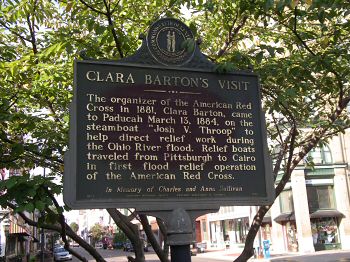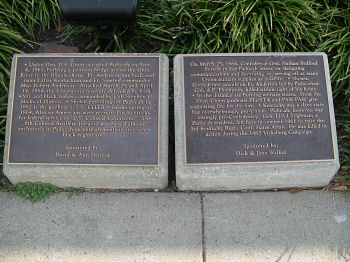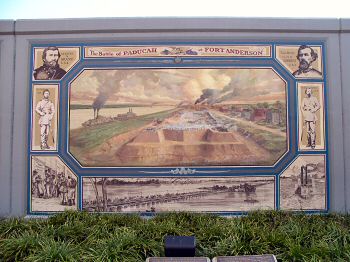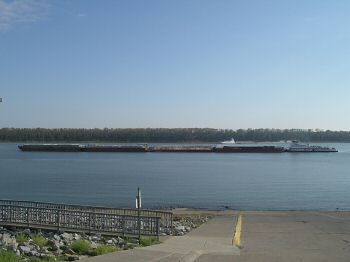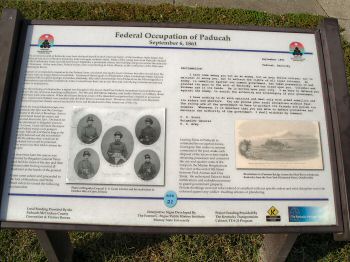|
Paducah in the
Civil War
During the American Civil War on September 6, 1861, forces under Union
General Ulysses S. Grant bloodlessly captured Paducah, which gave the
Union control the mouth of the Tennessee River. Throughout most of the
war, US Colonel Stephen G. Hicks was in charge of Paducah and massive
Union supply depots and dock facilities for the gunboats and supply ships
that supported Federal forces along the Ohio, Mississippi and Tennessee
River systems.
On December 17, 1862, under the terms of General Order No. 11, thirty
Jewish families, longtime residents all, were forced from their homes.
Cesar Kaskel, a prominent local Jewish businessman, dispatched a telegram
to President Lincoln, and met with him, eventually succeeding in getting
the order revoked.
On March 25, 1864, Confederate General Nathan Bedford Forrest raided
Paducah as part of his campaign Northward from Mississippi into Western
Tennessee and Kentucky to re-supply the Confederate forces in the region
with recruits, ammunition, medical supplies, horses and mules and to
generally upset the Union domination of the regions south of the Ohio
river. The raid was successful in terms of the re-supply effort and in
intimidating the Union, but Forrest returned south.
Forrest's report: "I drove the enemy to their gunboats and fort;
and held the town for ten hours, captured many stores and horses; burned
sixty bales of cotton, one steamer, and a dry-dock, bringing out fifty
prisoners."
Later, Forrest, having read in the newspapers that 140 fine horses had
escaped the raid, sent Brigadier General Abraham Buford back to Paducah,
to get the horses and to keep Union forces busy there while he attacked
Fort Pillow.
On April 14, 1864 Buford's men found the horses hidden in a foundry as the
newspapers reported. Buford rejoined Forrest with the spoils, leaving the
Union in control of Paducah until the end of the War. |
